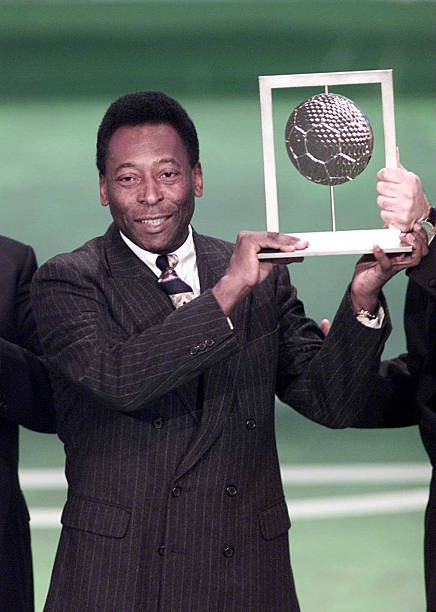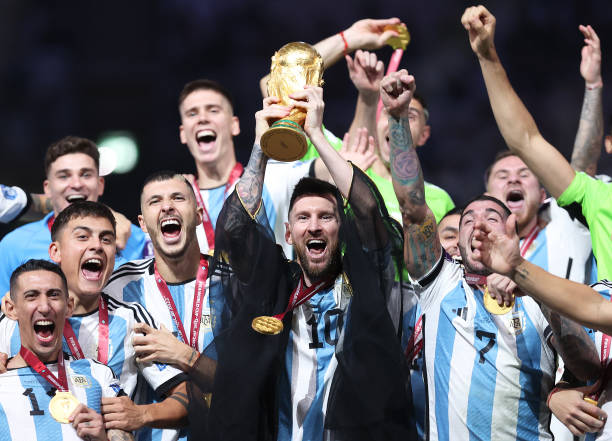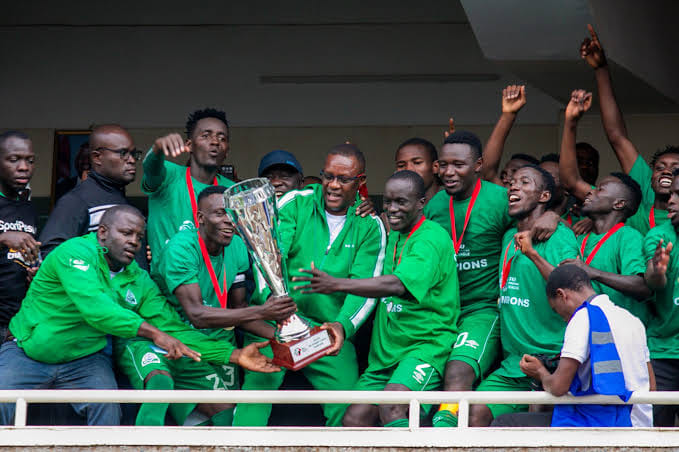Boxing; The Sleeping Legend of Kenya's Boxing
by natscott on | 2023-07-25 12:04:18 Last Updated by natscott on2024-05-18 08:50:49
Share: Facebook | Twitter | Whatsapp | Linkedin
Flashback! It is 1964, in the featherweight division of the prestigious Olympic Games in Tokyo Japan. In the ring enters, for the first time ever in the history of the games, a 19 year old, little known Kenyan. Looking obviously out of place, and needing an improved diet, no one in their wildest imagination would bet that the future of Kenyan boxing, and indeed the pride of African boxing rested on those frail looking shoulders of one Mr. Philip Waruinge.
Little known to many, this was the first steps to a glitzy boxing career for the fledgling boxer. Indeed, to the amazement of many, Philip went on to bag a bronze in 1968 in Mexico City and silver in the same games in Munich in 1972. In summary, Philip Waruinge won seven gold, one silver and two bronze medals in his unparalleled quest to conquer of the boxing world.
In fact, he was only 24, when he became the first and only African boxer to win the much coveted Val Barker trophy. This is a trophy presented every four years to the most outstanding boxer of the Olympics games.
After his exploits in Japan in 1970s, and almost dominating the boxing world in Japan, Waruinge threw in the towel in 1986, and retired to his home in Nakuru County in central Kenya.
Disappointingly, despite the world exploits, Philip quietly faded into his sunset years with little to show off. He depended solely on well-wishers and a 20 dollar a month government stipend, which would hardly meet his medical expenses. Beyond that, neither the government of Kenya nor the Boxing Federation of Kenya (BFK) did anything to venerate the legend of African Boxing.
Philip’s heart-wrenching tale of a neglected legend is not an isolate in the Kenyan Boxing profession. Boxing has a long and storied history in Kenya, from back when it started in the early 20th century. Over the years the sport has produced some of the country's greatest and respected athletes like Robert Wangila, Dick Tiger and Philip Waruinge.
However, in recent years, the popularity of boxing has greatly waned. Fewer to a handful in Kenya seem to show interest in the sport. Little to no resources has equally been allocated to support the ‘once upon a time’ glittering boxing in Kenya.
Back then, when boxing was introduced in Kenya by British colonialists, there was an evident passion for the sport. The first recorded match in Kenya took place in 1922 between a British Soldier and a Kenyan boxer called Muhammed Said. After a number of exhibition matches between native Kenyans and British soldiers, boxing became almost a household name in Kenya. Perhaps seeing it as a way to match their British masters and a chance to ‘whip’ their masters without consequences, a flurry of young indigenous men took up boxing with utmost pride.
As expected, Philip Waruinge’s exploits in the featherweight division at the 1964 Olympics in Tokyo inspired a new generation of boxers, who had exploits of their own to cherish. The likes of Robert Wangila won a gold medal in the welterweight division at the 1988 Olympics in Seoul, in the Republic of Korea, while Chris Sande, won a silver medal in the light flyweight division in the same Olympics.
Despite these successes, in recent days boxing in Kenya has struggled to live up to its glory days. This is largely attributed to the lack of financial support and investment, both from the Kenyan government and the private sector. Boxing clubs, which were once the lifeblood of the sport, now struggle to secure funding for equipment, facilities, and coaching. The absence of proper infrastructure has made it difficult for aspiring boxers to train and develop their skills, as they grapple with limited resources and opportunities. In addition, the lack of public interest in the sport has made it difficult for the sport to attract new fans and sponsors.
Moreover, the dominance of other sports, such as football and athletics in Kenya, has also contributed to the waning of boxing. The absence of a robust system for scouting, nurturing, and promotion talent has hindered the development of promising boxers, leaving many potential champions undiscovered or unable to reach their full potential.
The decline of boxing in Kenya can fairly be equated to a loss of generational potential and opportunity.
However, all hope is not lost. Despite the challenges faced by boxing in the country, there are dedicated individuals, coaches, and boxers who continue to fight for boxing sport resurgence. Efforts are being made to secure funding, improve infrastructure, and increase support from both the public and private sectors. There are currently deliberate initiatives such as grassroots development programs, talent identification, and training academies aim to revive the dwindling spirit of boxing in Kenya.
The decline of boxing in Kenya is a ruthless reminder of the need for sustained investment, collaboration, and commitment to sports development. Only through collective efforts can the sport regain its former glory and provide a platform for talented Kenyan boxers to shine once again on the world stage. The challenge lies ahead, but with perseverance and determination, it is possible to reignite the passion for boxing and witness resurgence in Kenya's boxing legacy.
From a rich history of triumphs to dwindling opportunities, the story of boxing in Kenya is a poignant reflection of the challenges faced by the sport in the Kenya.
Search
Recent News
-
 Football legend Pele dies at the age of 82
Football legend Pele dies at the age of 82
-
 Messi lifts the world cup trophy after defeating France
Messi lifts the world cup trophy after defeating France
-
 Kenya premier league comes to an end; Gor wins
Kenya premier league comes to an end; Gor wins
-
 Lionel Messi to Kylian Mbappe:
Lionel Messi to Kylian Mbappe:
-
 Will Declan Rice make a move to Arsenal?
Will Declan Rice make a move to Arsenal?
-
 Kovacic signs for man-city
Kovacic signs for man-city
-
 Premier League set to resume in August
Premier League set to resume in August
-
Rangers and Everton linked 33-goal striker decides
Popular News
Top Trending
-
 Football legend Pele dies at the age of 82
Football legend Pele dies at the age of 82
-
 Messi lifts the world cup trophy after defeating France
Messi lifts the world cup trophy after defeating France
-
 Kenya premier league comes to an end; Gor wins
Kenya premier league comes to an end; Gor wins
-
 Lionel Messi to Kylian Mbappe:
Lionel Messi to Kylian Mbappe:
-
 Will Declan Rice make a move to Arsenal?
Will Declan Rice make a move to Arsenal?
-
 Kovacic signs for man-city
Kovacic signs for man-city
-
 Premier League set to resume in August
Premier League set to resume in August
-
Rangers and Everton linked 33-goal striker decides